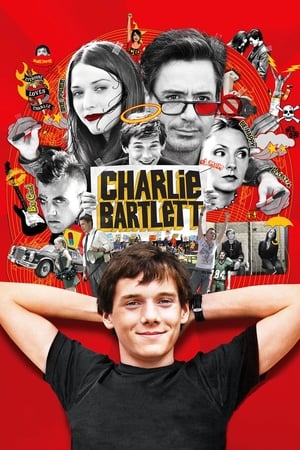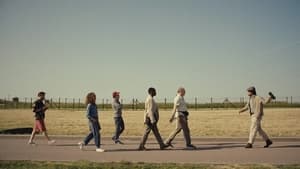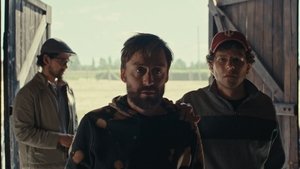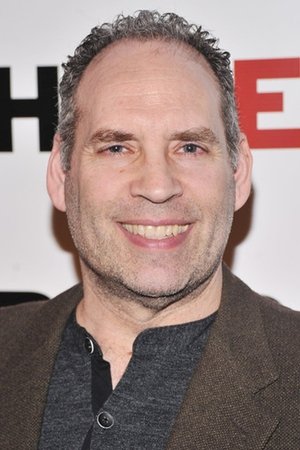-
Brent Marchant
Finding ourselves, particularly the process of finding what we’ve lost about ourselves, can be an eye-opening, enlightening but sometimes-painful ordeal, especially if we’re unclear about where to look. For many of us, though, this is a challenge we often attempt to resolve by examining our past, specifically that of our family and its legacy, in hopes that it provides the answers we seek. Such is the quest embarked upon by two once-close cousins, David (Jesse Eisenberg) and Benji (Kieran Culkin), who journey to Poland on an intimate heritage tour to visit the homestead of their beloved deceased grandmother, a Holocaust survivor who made her way to America after World War II. While David and Benji were at one time as thick as thieves, they’ve drifted apart over time, each becoming significantly different from one another, but they hope to reestablish their longstanding connection through this intensely personal pilgrimage. As their odyssey unfolds, though, they come face to face with the changes that have arisen both in their relationship and in their understandings of themselves, from life goals to their cultural background as the descendants of Polish Jews to how they fundamentally relate to the world. It’s an often-difficult process for these earnest seekers, especially in light of their discovery that, if they truly wish to better understand themselves, they can only go so far in looking outward, instead needing to look inward for guidance and meaningful insight. And its aptly selected title is an ably suitable metaphor on multiple levels, not only in describing Benji’s often-manic, irrational and unpredictable behavior, but also in characterizing the anguish that he and David undergo in making their way through this emotional minefield. This second feature effort from actor-writer-director Eisenberg is indeed an impressive offering, even if its road trip/buddy movie script could use some periodic tweaking in terms of focus and its balance between comedy and drama. More significantly, however, this is a breakout performance for Culkin, who shows just how adept he can be with the right material, an award-worthy portrayal, to be sure. Add to this the film’s gorgeous cinematography of Polish landmarks and the country’s landscapes, as well as its fittingly appropriate Frédéric Chopin soundtrack, and you’ve got a profoundly thoughtful release, one that should give anyone in the cousins’ shoes pause for reflection, something from which we can all benefit from time to time, no matter what we’re ultimately looking for.
-
Chris Sawin
Written and directed by Jesse Eisenberg, A Real Pain sees two cousins reunite after a long period. David (Eisenberg) and Benji (Kieran Culkin) were raised together and were around each other so much growing up that they were brothers. They meet up in the present day for a Poland Holocaust tour that culminates with them visiting the house that once belonged to their grandmother. David and Benji are at two different stages of life despite being a few months apart. David has a full-time job, a wife, and a kid while Benji is single and doesn’t have a job. While David has fond memories of their grandmother, she was Benji’s favorite person in the world and her death took a huge toll on him that he still hasn’t gotten over. The two estranged cousins are complete opposites of one another. David plays it safe and is typically very quiet while adhering to the rules that are laid out before him. Benji is outspoken, charming, and doesn’t care what people think. People always know how he feels, which isn’t always a good thing since his moods change on a whim. The performances are interesting because Jesse Eisenberg has always had this kind of neurotic demeanor about him as an actor (talks fast with few pauses, is anxious around other people, totally awkward). Leave it to a film that he writes, directs, and stars in for him to play the more grounded of the two main characters. When Benji’s unusual behavior becomes unbearable, David cracks under the pressure of trying to hold it together and be the more level-headed of the two. Eisenberg portrays frustration, anger, sadness, and love in a way that is relatable and believable. Kieran Culkin steals nearly every scene he’s in as Benji. As a character, Benji has a way of being the center of attention without really trying. He speaks his mind and does what he wants. He doesn’t care if he comes as rude or down to earth or like an asshole. He is effortlessly charismatic and funny with a ton of potential to be more than he is. But he’s also broken and the entire tour group can see that. Like Benji wears on David, he can be overbearing at times to the audience but that also makes the character feel that much more genuine. There’s a fine line between paying respect and being blasphemous in A Real Pain. David doesn’t want to be disrespectful in any way while Benji makes his decision based on how he feels. For example, posing dramatically and humorously in front of a monument honoring those who gave their lives during the war could be seen as therapeutic or shameful. Later in the film, the tour group doesn’t see an issue traveling in a first-class train car while Benji is immensely offended since Jews were forced to ride in the very back of the train. The film is written in a way that reveals a bit more behind each cousin as the film progresses. What begins as two cousins traveling to Poland and paying respect to their grandmother evolves into David worrying whether or not Benji can survive on his own while Benji is upset that he doesn’t hear from David much anymore because he’s a family man with a career. They’re two different sides of the same coin: one cousin is taking life too seriously while the other doesn’t take it seriously enough. And as a neutral party watching this all unfold, you can see the benefits and shortcomings of both sides. Being married, having a child, and having a full-time job takes up all your free time. On the other hand, not having a job leaves you with more time to feel like no one has time for you anymore. Both cousins are at an impasse and maybe that’s the takeaway from A Real Pain: to make do and appreciate what you’ve got. And the film ends in a way that doesn’t resolve anything. As adults, we age, get invested in our careers, and drift away from friends and family who were once close because of our commitments as responsible people. A Real Pain touches on that concept. The more we want things to change and the more we want our loved ones to be safe and happy there’s only so much we can do before we go back to our regularly scheduled and separate lives. We just have to hope that that bond and nostalgia that we share is enough until we’re able to meet again. Just because you reach out doesn’t mean things will get better. It lets that loved one know you care and sometimes that’s enough. A Real Pain capitalizes on the ups and downs of traveling with a family member. You love them and have a deep connection with them, but they also annoy you to no end and are reminded why you don’t see them more often. Jesse Eisenberg has made a film that is emotionally powerful and unbelievably relatable while Kieran Culkin delivers an exhaustingly mesmerizing performance loaded with depth and relentless magnetism. The way the film revolves around such flawed individuals makes them feel grounded in reality and A Real Pain feels like bona fide cinema because of it.
-
Chandler Danier
Good little buddy trip flick. Funny bits. Characters. Stupid tourists making life miserable for locals. Better acting than the mighty Megalopolis. Very clever title.
-
CinemaSerf
"Grandma Dory" has passed away and left her two grandsons some money so that they can take a trip to Poland and see where she grew up amidst the Nazi invasion and subsequent holocaust. These two are cousins. "David" (Jesse Eisenberg) is a bit of a shy, geeky, type who lives in New York with his wife and child. "Banji" (Kieran Culkin) is quite the opposite. A free spirited, thinking and speaking individual who cares little for what anyone else thinks about him. The pair clearly love each other, but the behaviour of the latter continues to rattle his travelling companion, especially when they meet up with the other members of their touring party in Warsaw. What now ensues is quite a testament to both Eisenberg's vision as a writer/director but also to the inspired casting of Culkin. He is the kind of holiday companion I'd cheerfully have killed with a rusty harpoon. Loud, brash, opinionated and sometimes borderline cruel as he imposes himself on the group swearing as he goes. Gradually, though, we discover that both men have shields up; both are dealing with some fairly deep psychological issues in their own way and even ought these may clash, there is still far more fundamentally connecting them that not. There are ample opportunities to see the sights of Warsaw, and there is an haunting few minutes at the Majdanek camp where shoes, thousands and thousands of shoes, make you shiver. It's potent and it's often funny, darkly so, and in many ways it slots nicely into the recent panoply of dramas about the fascination by younger generations in the horror of war that those who endured actually want to get past and forget. It also shines a light on the whole business of tourism around these monuments, and does make it quite clear that sometimes these trips can become a statistical box-ticking exercise, especially for Americans, who want to say they've "done" that. An architectural monument equivalent of a safari "big five". In the end I found "Benji" to be a vulnerable but fundamentally selfish and unlikeable character - but I bet there are many reading this who profoundly disagree. That's proof that these two did their job well and I'd recommend you go see it in a cinema for a couple of powerful and characterful performances.
-
r96sk
<em>'A Real Pain'</em> is a real solid watch. It makes up for its no-frills with plenty of heart and a meaningful buddy road trip. It's described as a comedy-drama and it is, though I'd say it's more the latter than the former; albeit with a still sizeable dose of comedy, it is amusing. Kieran Culkin is the reason for the aforementioned, he is the star of this particular show and is funny throughout - though when he has to play more serious, he does to very good effect. Jesse Eisenberg (also dir.) acts alongside, he plays his character really well too. Two strong performers! Will Sharpe and Kurt Egyiawan are good too. I remember seeing part of the trailer and thought it had <em>'Planes, Trains and Automobiles'</em> vibes, I guess there are naturally tiny shades of that but it is very much its own thing. I definitely enjoyed watching it unfold.
please Login to add review


































































